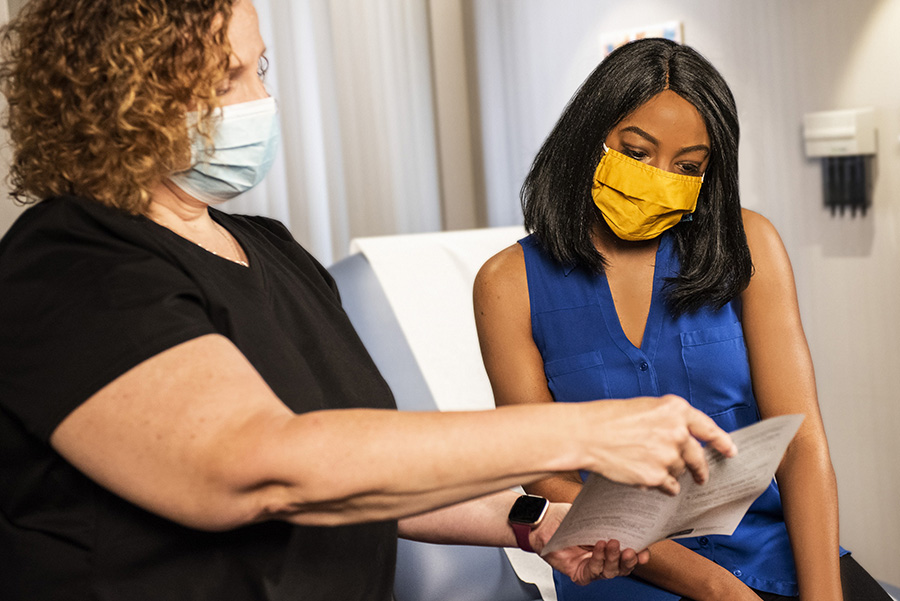Despite the best efforts of the medical and scientific communities, the past two years have shown that the novel coronavirus is unlikely to be completely eradicated. COVID-19 will transition from pandemic to endemic, remaining at large within the population and manifesting itself in a long series of variants like Delta and Omega. At some point, we may even run out of Greek letters.
What does COVID-19 remaining a threat for the foreseeable future mean for patients undergoing fertility treatment? Is it safe for people who are considering growing their families to get vaccinated, or even to continue fertility treatment? The American Society for Reproductive Medicine (ASRM) has recently released its 20th update since the beginning of the pandemic, so let’s take a look at their recommendations for clinical procedures and patient management after two years of dealing with COVID.
Physicians and researchers agree that individuals who are already pregnant or considering pregnancy should absolutely get vaccinated against COVID-19, and also receive whatever boosters are available. Vaccines and boosters pose no known threat to pregnant individuals and developing babies, so there is no incentive for fertility patients to avoid vaccination. There’s a lot of misinformation out there, but all evidence points to vaccines being safe.
Just follow CDC guidelines to find the right vaccine-booster schedule based on your age, vaccination history, and risk factor. Expectant parents and those undergoing fertility treatments are not considered immunocompromised, but catching COVID-19 while pregnant can lead to serious complications that are mitigated if the woman has been vaccinated.
As the coronavirus lingers in the population, telehealth appointments are a great way to maintain access to fertility care while minimizing the risk of infection. In many cases, remote appointments are safer for both patients and practitioners, so in-person care is only necessary for certain professionally administered treatments. Patients in the U.S. whose doctors live in another state should make sure that both states allow telehealth practice across state lines.
Fertility treatment practices are medical facilities and should continue exercising maximum caution around COVID-19. This means monitoring local, national, and worldwide trends for increased rates of infection or new strains of the novel coronavirus. Administrators can keep up with the latest COVID news as part of their duties. Patients and visitors should be screened for COVID, and reproductive care facilities in hospitals will practice the hospital’s minimum screening standards – and may actually be stricter than that.
Reproductive practitioners and patients alike should practice social distancing and masking with N95 respirators. Anyone in a medical facility should be strongly encouraged to vaccinate, and requiring proof of vaccination from both visiting patients and employees is a completely reasonable (if not mandatory) step.
The ASRM COVID-19 Task Force offers a great FAQ for anyone with questions about fertility and COVID, and useful information is also available on their Instagram. The one key takeaway from all this information is that COVID-19 continues to pose a serious threat to fertility patients and their unborn children, while vaccination can minimize and even eliminate these dangers without harming patients or pregnancies.
If you are undergoing fertility care, get vaccinated and continue treatment as normal. It’s safer for fertility patients, safer for pregnancies, and safer for everyone.


